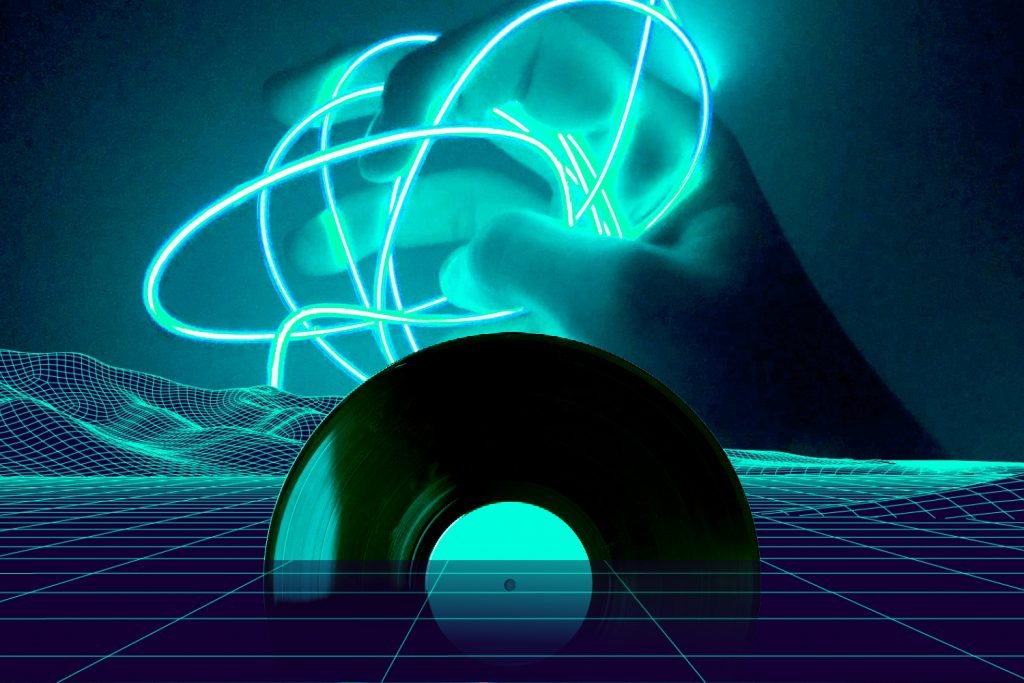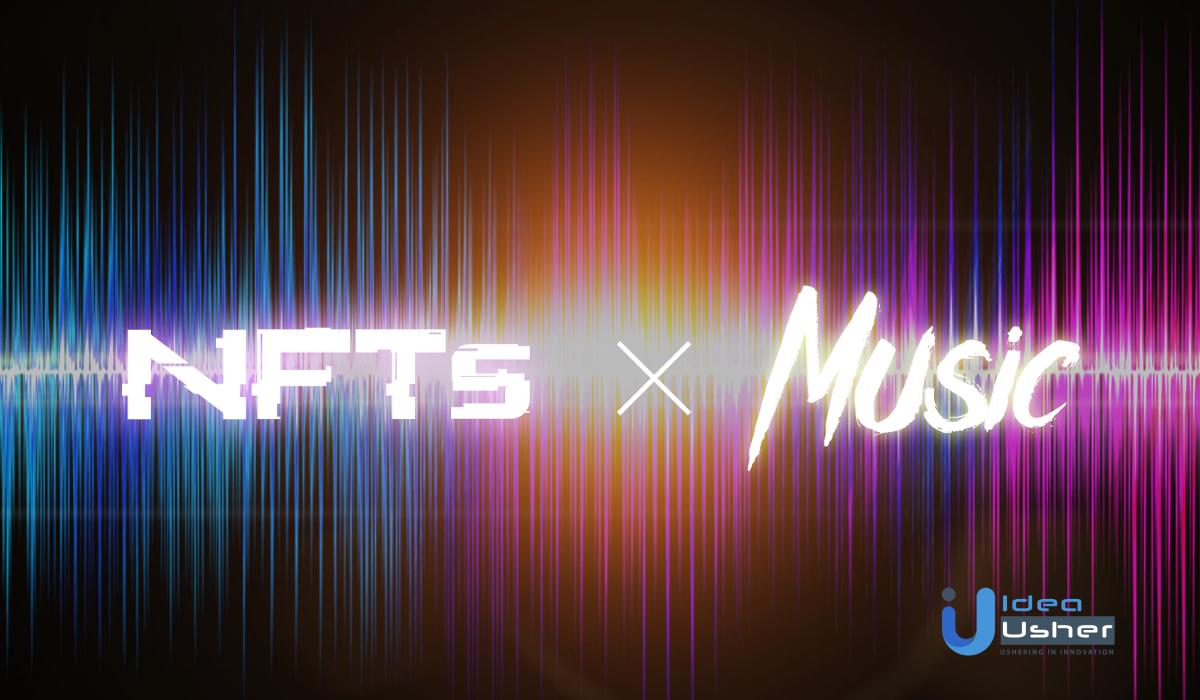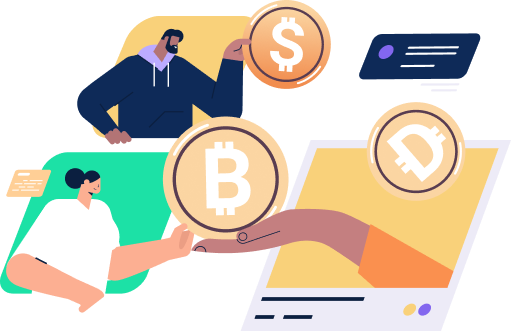The NFT effect on the Music Industry
NFT stands for non-fungible token. It is an innovative new technology that allows digital creators to secure ownership rights for their content. NFTs are revolutionizing digital collectibles, content, and art. They are also starting to find their way into the music industry as well.
2021 was the breakthrough year for NFTs. It is estimated that over $25 billion in NFT sales were completed during this period. But NFTs are getting bigger and the music industry will stand to gain a lot from widespread NFT adoption. So, how will this even happen? Well, in this post we will go into deeper details and give you a rough picture of the future of NFTS in the music industry.
What are Music NFTs?
We have all heard about the non-Fungible token or NFT and how it is helping digital creators secure ownership rights for their work. But how does this actually apply in music? Well, to put it simply, a music NFT is a certificate that proves ownership of a given audio or musical piece.
The certificate is stored on the blockchain as a tokenized record. It means that it can prove that the audio or music attached to it is fully authentic. It also means that the original audio cannot be forged or copied by anyone else. In essence, music NFTs use blockchain technology to help artists protect the copyright to their work.
What Are the Different Forms of Music NFTs?
There are also several different forms of music NFTs. The first, and perhaps the most common, are the NFTs attached on full songs and albums. In fact, award-winning R&B singer Trey Songz recently released an NFT inspired catalog of unreleased songs available exclusively to fans around the world. The NFTs are available on Binance.
It is also possible for musicians and performers to integrate NFTs into other digital works including music videos and images. This may include interesting behind the scene photos or recording sessions. We are also seeing a trend where NFTs are used to provide exclusive access to in-person events. This is done through ticket NFTs and is expected to play a key role in combating ticket fraud in live music gigs.
How Will NFTs Revolutionize Music
NFTs are fairly new and it’s hard right now to accurately gauge the kind of impact they will have on the music industry. But despite this, there are several ways through which NFTs can add more value to the music industry. Here are some of them:
Copyright Protection
Even before the digital age of music, artists all over the world had to worry all the time about copyright infringement. Bootleg CDs, for example pirated albums, used to be very huge in the 1980s and 1990s. However, the rise of the digital age made it even harder for artists to protect their copyrights.
With the internet, anyone could just take a song, post it as their own online, and earn royalties from it. But NFTs are going to change this. It will now be much easier for fans to know original music when they see it online. This will go a long way in helping artists secure copyrights and even track the royalties generated online.
Cut Off the Middle Man
A lot of companies have made billions of dollars from musicians around the world. For example, a company like Spotify rakes in billions each year for providing music streaming while most musicians receive next to nothing for their work. This has actually been a very serious concern among musicians and other content creators.
A lot of musicians want to be able to sell their music directly to fans since this will bring back revenue into the pockets of singers and creators. NFTs can help to decentralize music distribution while protecting copyright at the same time. This will then allow musicians to sell original songs and albums directly to their loyal fans.
Exclusivity
NFTs may also help musicians create an aura of exclusivity around their work. Let’s say for example an artist wants to release a special album for certain fans. NFTs can help make that album exclusive in the sense that only holders of that token will get access to it.
Exclusivity in music has been lacking for so many years. These days you can just go on YouTube or Spotify and find the same songs and albums everybody else is listening to. But NFTs could make it easier for loyal fans to access more exclusive content.
Expanding Investment in Music
The music industry works in a very centralized way. In almost all cases, talented artists cannot make it without a record label. Record deals are free of course. But it also means that the label will have exclusive rights over the artist’s music and future albums.
NFTs however can help take away much of this power from record executives and companies. Instead, talented musicians can issue NFTs before even recording albums as a way of raising money to support their careers.
This will allow fans to get directly involved in not only funding music careers but also profiting from them once the talents involved become big. We have actually seen this happen last year when UK-based artist 3LAU raised nearly $11.7 million through an NFT action of his future album.
Level the Playing Field
There are so many barriers of entry for new and upcoming artists. Record companies and music executives are also known to be biased sometimes and as such, a lot of truly talented singers find it very hard to make it.
An NFT inspired music industry could change all this. Talented artists can auction NFTs for songs directly to fans without having to go through biased record companies. NFTs will in essence democratize music, making it easier for anyone to directly benefit from the industry.
When Is the NFT Revolution in Music Coming?
NFTs are still an emerging asset class and there is still a lot of potential to be unlocked with these tokens. The application of NFTs in music is therefore going to be gradual and not as rapid as perhaps most people think.

Source: https://nftevening.com/wp-content/uploads/2021/06/Viberate_NFTs_Press_cover_2-1024×683.jpg
The music industry is highly centralized and it will take years before NFTs have enough disruptive force to change the industry in any big way. But we are starting to see the seeds of this disruption being planted all over. The fact that big-name artists like Trey Songz, Snoop Dogg, and others, are looking into NFTs is also big.
However, it will probably be another year or two before we start to see the wide-scale use of NFTs in music and related content. The good news is that the blockchain infrastructure needed to support the wide adoption of music NFTs is already there. It’s just a question of how fast the mindset of musicians and other stakeholders in the industry changes towards NFTs.
Final Thoughts
NFTs have often been touted as the next big thing in crypto. Quite rightly so, these non-fungible tokens appear to have far-reaching applications, including in the highly centralized music industry.
There is no doubt music NFTs have the potential of transforming the entire industry by giving power back to musicians and creators. While this will take a bit of time, it will gradually happen soon.
* We hope this information will help you in your investment process, but this is not investment advice. Every investment carries risk, especially in this industry, so DYOR before making a decision.







